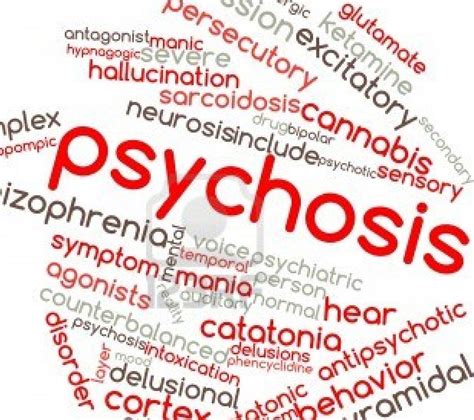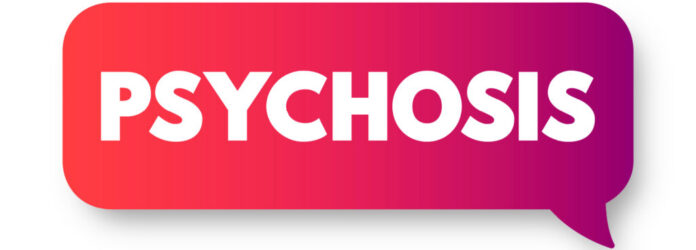Psychosis is a mental health condition that significantly alters a person’s perception of reality, often leading to confusion, delusions, and hallucinations. While the disorder can be debilitating, understanding its complexities is key to managing its impact on both personal and professional development. This article delves into the nature of psychosis, exploring its symptoms, causes, and the toll it can take on an individual’s life and career. With early detection, appropriate treatment, and workplace strategies, it’s possible to navigate the challenges of psychosis and still achieve personal growth and career success. By raising awareness, we aim to provide valuable insights for individuals experiencing psychosis, as well as their employers and colleagues.
terylblog.com invites you to explore this topic thoroughly.
1. Definition and Overview of Psychosis
Psychosis is a mental health condition characterized by a disconnection from reality. Individuals experiencing psychosis may encounter hallucinations, which involve seeing or hearing things that are not present, or delusions, which are strong beliefs in something that contradicts reality. This condition is not a singular disorder but rather a symptom of various mental health issues such as schizophrenia, bipolar disorder, and severe depression.
Psychosis can emerge suddenly or develop gradually over time, often triggered by factors like stress, trauma, substance abuse, or underlying medical conditions. While the experience of psychosis can be overwhelming and confusing, it is important to note that it is treatable with the right interventions. Early identification and management can significantly improve outcomes for affected individuals.
Understanding psychosis is essential, as it impacts more than just mental health—it can also disrupt personal relationships, daily functioning, and professional development. Gaining insight into this condition allows both individuals and those around them to better manage its challenges and support long-term recovery and growth.

4. Impact on Personal Life
Psychosis can have a profound impact on an individual’s personal life, affecting relationships, daily activities, and emotional well-being. The altered perceptions and beliefs brought on by psychosis often lead to confusion and mistrust, which can strain relationships with family, friends, and loved ones. A person experiencing psychosis may withdraw from social interactions, feeling disconnected from the people around them or believing that others are out to harm them. This can result in isolation, further exacerbating feelings of loneliness and distress.
Daily functioning also becomes challenging, as psychosis often impairs one’s ability to focus, make decisions, or engage in routine activities. Tasks that once seemed simple—such as managing personal finances, maintaining a household, or even self-care—can become overwhelming. Over time, these disruptions may lead to a decline in quality of life, as personal responsibilities are neglected and social ties weaken.
Emotionally, individuals with psychosis may experience a range of intense feelings, from fear and anxiety to apathy and depression. These emotional swings contribute to the difficulty in coping with the condition. Without proper support, the combination of isolation, reduced functionality, and emotional distress can significantly impair personal development and well-being.
5. Effects on Career and Professional Development
The effects of psychosis on career and professional development can be significant, as the symptoms often interfere with the ability to perform tasks, maintain productivity, and build workplace relationships. Individuals experiencing psychosis may struggle with concentration, memory, and decision-making, which are critical skills in most professional environments. Delusions or hallucinations may disrupt focus, making it difficult to stay on task or complete projects within deadlines.
Moreover, disorganized thinking can impair communication with colleagues or supervisors, potentially leading to misunderstandings or conflicts. Paranoia and mistrust, common in psychosis, may cause individuals to withdraw from workplace interactions, leading to social isolation and decreased collaboration. This isolation can hinder professional growth, as building networks and working effectively within a team are essential for career advancement.
Psychosis may also result in frequent absences or reduced job performance due to the fluctuating nature of the condition. The fear of stigma or discrimination often prevents individuals from seeking help or disclosing their condition, which can further exacerbate professional challenges. In severe cases, a person may find it difficult to retain employment altogether.
However, with early detection, proper treatment, and workplace accommodations, individuals experiencing psychosis can still achieve career success. Supportive environments that understand the condition and offer flexibility can help affected individuals manage their symptoms while pursuing professional growth.
6. Early Detection and Warning Signs
Early detection of psychosis is crucial for effective management and improving long-term outcomes. Recognizing the warning signs early can help individuals seek treatment before symptoms become more severe. Key indicators include noticeable changes in behavior, such as sudden withdrawal from social interactions or a marked decline in daily functioning. Individuals may also exhibit increased agitation, anxiety, or suspiciousness without clear reasons.
Another significant warning sign is a shift in thinking patterns, where the person might express irrational beliefs or delusions that are inconsistent with reality. Hallucinations, such as hearing voices or seeing things that aren’t there, are also critical signs. Changes in emotional responses, like an unusual flatness or inappropriate reactions to situations, can further indicate the presence of psychosis.
Early symptoms often include difficulty concentrating, erratic speech, and disorganized thinking, which can disrupt academic or work performance. Paying attention to these subtle changes can be vital for timely intervention. If these symptoms are observed, seeking professional help promptly can lead to early diagnosis and effective treatment, which can greatly improve the individual’s ability to manage the condition and maintain quality of life.
7. Treatment Options and Therapies
Treatment for psychosis typically involves a combination of medication, therapy, and support services tailored to the individual’s needs. Antipsychotic medications are often the cornerstone of treatment, helping to manage symptoms such as hallucinations and delusions. These medications work by affecting neurotransmitters in the brain to stabilize mood and thought processes.
In addition to medication, psychotherapy plays a crucial role in treatment. Cognitive behavioral therapy (CBT) is commonly used to help individuals understand and manage their thoughts and behaviors, providing strategies to cope with symptoms and reduce their impact on daily life. Supportive therapy can also offer a space for individuals to discuss their experiences and develop coping skills.
Family therapy and psychoeducation are important components as well, educating family members about the condition and involving them in the treatment process to create a supportive environment. In some cases, community support services, such as case management or peer support groups, can provide additional resources and assistance.
Early and continuous treatment is essential for managing psychosis effectively. With the right combination of therapies and support, individuals can achieve significant improvements in their symptoms and overall quality of life.
8. Strategies for Managing Psychosis in the Workplace
Managing psychosis in the workplace involves creating a supportive environment that accommodates the needs of individuals experiencing the condition while promoting their productivity and well-being. One effective strategy is to offer flexible work arrangements, such as adjusted hours or remote work options, to help manage the fluctuating nature of symptoms. This flexibility allows individuals to work during their most productive periods and reduce stress.
Open communication is crucial; fostering a culture where employees feel comfortable discussing their needs and challenges without fear of stigma is important. Providing access to mental health resources, such as employee assistance programs or counseling services, can offer additional support.
Workplace adjustments, such as a quieter workspace or modified duties, can help reduce distractions and manage symptoms effectively. It’s also beneficial to establish a clear plan for managing symptoms if they arise, including identifying signs that may require additional support or intervention.
Training for managers and colleagues on understanding psychosis and its impact can promote empathy and support within the team. Encouraging a collaborative approach to problem-solving and creating a positive, inclusive work environment can help individuals with psychosis maintain their roles and achieve their career goals.
9. Support Systems and Resources for Affected Individuals
Support systems and resources are vital for individuals affected by psychosis, offering assistance and guidance throughout their recovery journey. Mental health professionals, including psychiatrists, psychologists, and counselors, play a key role in diagnosing and treating psychosis. They provide personalized treatment plans, therapy, and medication management, tailored to the individual’s specific needs.
Support groups and peer networks offer invaluable emotional support and practical advice from others who have experienced similar challenges. These groups provide a sense of community and understanding, helping individuals feel less isolated and more empowered to manage their condition.
Educational resources, such as mental health organizations and online platforms, offer information about psychosis, treatment options, and coping strategies. These resources can help individuals and their families better understand the condition and navigate the complexities of managing it.
Community services, including case management and social services, can assist with accessing necessary resources, such as financial support or housing assistance. Employment support programs and vocational rehabilitation services can help individuals maintain or find work, offering guidance on navigating workplace challenges related to psychosis.
Family support and education are also crucial. Involving family members in the treatment process and providing them with resources can help create a supportive home environment, enhancing the overall effectiveness of treatment and recovery.
Understanding and managing psychosis requires a comprehensive approach that addresses both personal and professional challenges. By recognizing early signs, seeking timely treatment, and utilizing available support systems, individuals can effectively navigate the complexities of this condition. Creating supportive work environments and fostering open communication are key to ensuring that those affected can thrive both personally and professionally. Through education, empathy, and practical strategies, it is possible to reduce the impact of psychosis and support individuals in achieving their full potential, enhancing their quality of life and career development.
terylblog.com
